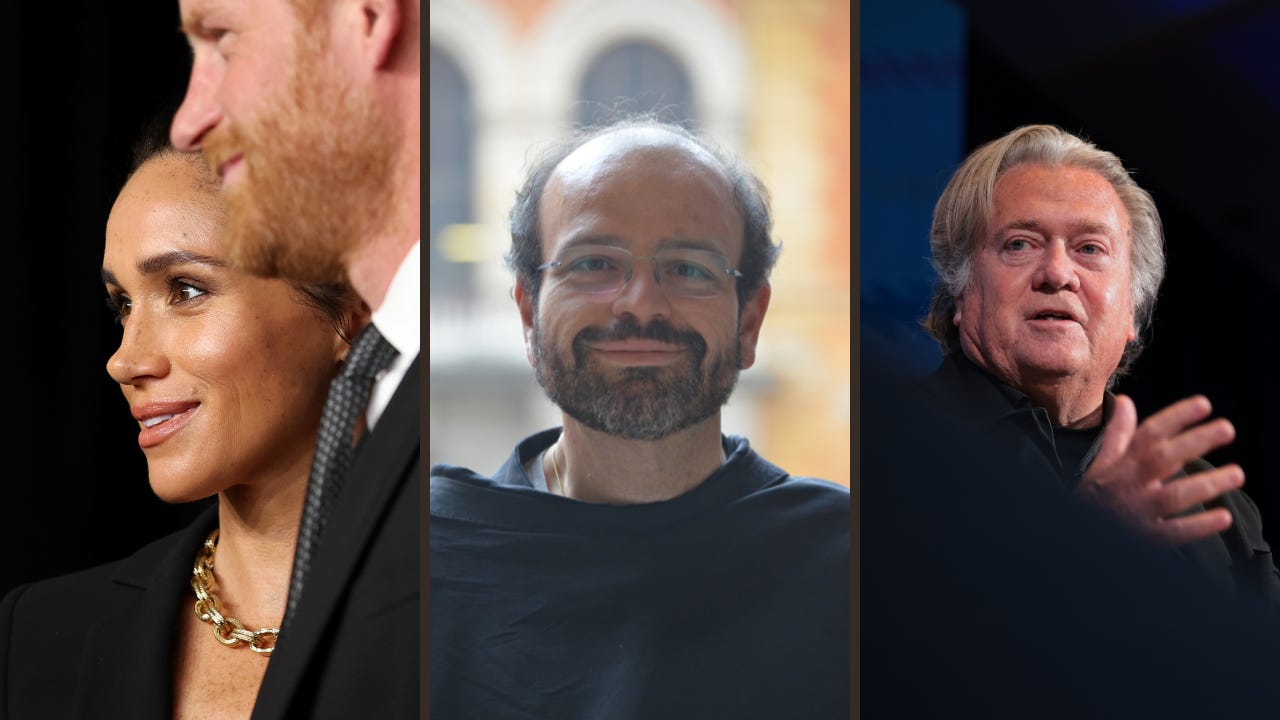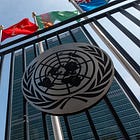Meghan Markle, Steve Bannon and Pope’s AI advisor call for superintelligence ban
30% of the American public think superhuman AI should never be developed, too

Prominent figures from across the political and cultural spectrum have called for a ban on the development of superintelligent AI until it is widely deemed safe and is backed by the public.
Former royals Prince Harry and Meghan Markle, conservative commentators Steve Bannon and Glenn Beck, the Pope’s AI advisor Paolo Benanti, and former national security officials Mike Mullen and Susan Rice all signed the statement which calls for:
“A prohibition on the development of superintelligence, not lifted before there is 1) broad scientific consensus that it will be done safely and controllably, and 2) strong public buy-in.”
They were joined by five Nobel laureates, Apple co-founder Steve Wozniak, business magnate Richard Branson, actor Stephen Fry, and many more. (Disclosure: the statement was organized by the Future of Life Institute, which is a donor to Transformer’s publisher.)
The statement was released alongside new polling which shows that the American public is broadly in agreement with the celebrity signatories. Among US adults, 30% think superhuman AI should never be developed, and a further 34% say it should be developed only after confirmation that it can be controlled and made safe. A majority of respondents said that extinction and loss of control risks were a “very good reason” not to develop superhuman AI. Almost three quarters also said they backed strong regulation, with just 5% saying they were in favour of unregulated development.
The statement and polling show a growing coalition of groups concerned about the risks of advanced AI systems. They also provide further evidence that the concern is strong among the religious right: one of the most notable signatories is Johnnie Moore, an evangelical leader who was one of President Trump’s earliest supporters and advisors.
Yet this couldn’t be further from the White House’s views on AI. Michael Kratsios, director of the White House Office of Science and Technology Policy, recently dismissed the “existential risk” of AI, while last week White House AI czar David Sacks lambasted an Anthropic executive for warning of the risks of AI, accusing the company of “fear-mongering.”
Meanwhile, the leading AI companies continue a race to create superintelligence — despite previously warning of the risks themselves. The divide between the public and those in the driving seat has never been clearer.



The polling numbers are really strikin, especially that 30% saying superhuman AI should never be developed at all. The fact that Glenn Beck and Johnnie Moore are on this alongside Prince Harry and Meghan shows this is not just the usual tech skeptic crowd. What's fascinating is the disconnect between the public's concerns and the White House's position, especially with Sacks and Kratsios dismissing existential risks while companies race toward superintelligence. The gap between public sentiment and actual policey has never been wider.